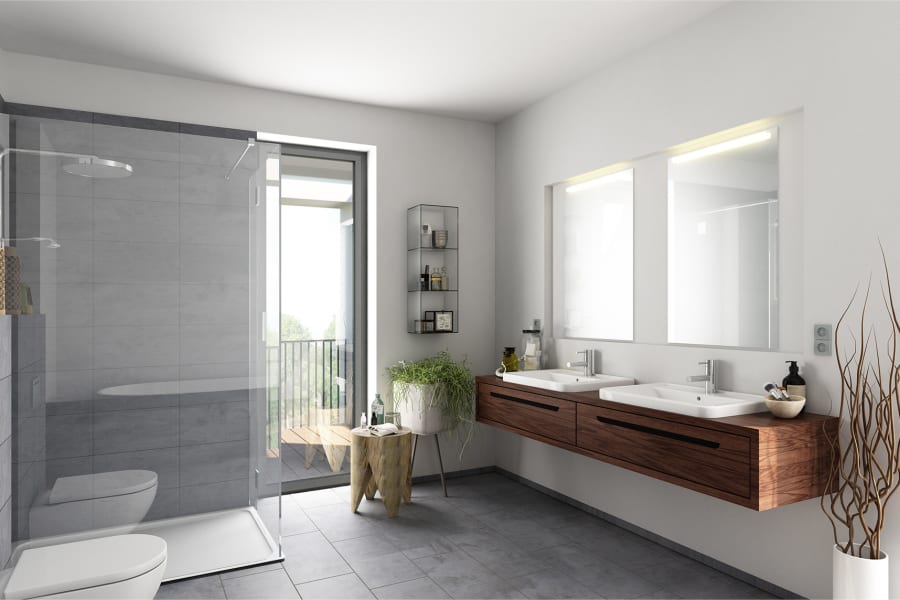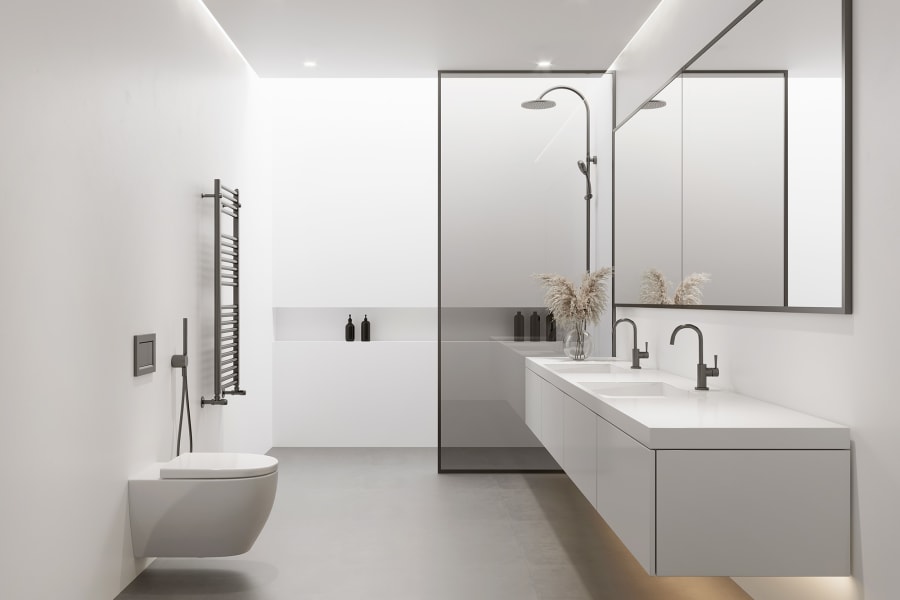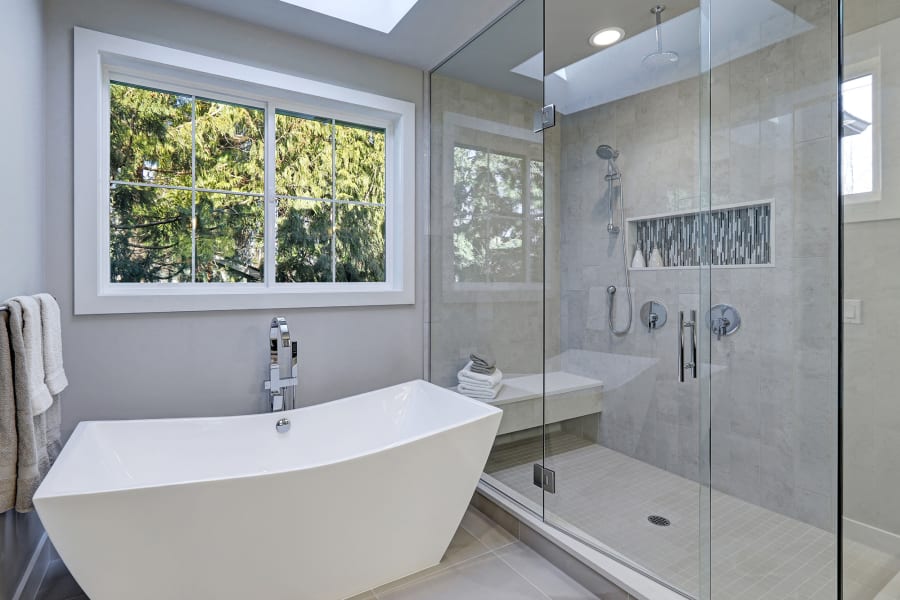100% Waterproof Shower Systems
If you pick the perfect shower tile but don’t invest in a good waterproofing system, you might as well throw all your tile away.
Proper waterproofing could mean the difference between a tile installation that lasts a lifetime and thousands of dollars in water damage.
Proper waterproofing could mean the difference between a tile installation that lasts a lifetime and thousands of dollars in water damage.
How does it work? What's the order process like?
Puget Sound Residents
Send us a drawing with measurements or schedule an appointment and we’ll create a quote for all the supplies you need to build your dream shower. Pick up your supplies in-store.
Alaska Residents
If you have a Span Alaska account (or other Alaska shipping company), we can bundle your shower system and drop it off at their local facility for a flat $60 packing fee.
Everyone Else in the Continental USA
Visit our online store to order a shower kit and various accessory items, such as shelves and benches.
Send us a drawing with measurements or schedule an appointment and we’ll create a quote for all the supplies you need to build your dream shower. Pick up your supplies in-store.
Alaska Residents
If you have a Span Alaska account (or other Alaska shipping company), we can bundle your shower system and drop it off at their local facility for a flat $60 packing fee.
Everyone Else in the Continental USA
Visit our online store to order a shower kit and various accessory items, such as shelves and benches.
Schedule an appointment
Important Notes on Waterproofing
Water goes where it wants
H2O is a determined little molecule; if it can find a way to get through your grout, past your tile, and into the structure of your house, it will. That's why waterproofing your shower installation is so important: if you don't do the job right, the water damage four to eight years down the road may be irreparable.
One common misconception is that if the building materials are tightly set, then water can't get through. Water will use even the tightest cracks and crevices to creep and work its way out in what's known as the Wick Effect. Each time the water creeps in (each time you take a shower, for example), it will open the crevice a little more and leak exponentially faster. The smallest crack or unsealed area will spell disaster. That's why you need a completely watertight system that will allow for no absorption or leaks.
"Water stable" is not waterproof
Some products, such as cement board, are water stable. This means that they will not warp, swell, or fall apart if exposed to or submerged in water, in the way that plywood or drywall would. But they are not waterproof: water will still absorb into cement board. If all you have between your shower water and your wall studs is cement board, water will wick through to your wood wall studs and cause mold and mildew.
Waterproof materials, such as boards or rubber membranes are non-porous and will not allow water through. Sealing the seams with the appropriate material, such as polyurethane sealant, will keep your entire installation together.
Grout and tile are not waterproof
"I have a non-porous tile and non-porous grout. Do I still need to waterproof my shower?"
Yes. Tile and grout should NEVER be relied upon to waterproof a shower installation. Even the highest density tiles and grout were not intended by their manufacturers to be a waterproofing material. There is still a chance that your grout can separate from your tile, creating a tiny leak that can cause huge problems. Even slab walls need to be seamed in the corners, and those corner seams could fail in time. A waterproof substrate is required for ALL shower installations.
H2O is a determined little molecule; if it can find a way to get through your grout, past your tile, and into the structure of your house, it will. That's why waterproofing your shower installation is so important: if you don't do the job right, the water damage four to eight years down the road may be irreparable.
One common misconception is that if the building materials are tightly set, then water can't get through. Water will use even the tightest cracks and crevices to creep and work its way out in what's known as the Wick Effect. Each time the water creeps in (each time you take a shower, for example), it will open the crevice a little more and leak exponentially faster. The smallest crack or unsealed area will spell disaster. That's why you need a completely watertight system that will allow for no absorption or leaks.
"Water stable" is not waterproof
Some products, such as cement board, are water stable. This means that they will not warp, swell, or fall apart if exposed to or submerged in water, in the way that plywood or drywall would. But they are not waterproof: water will still absorb into cement board. If all you have between your shower water and your wall studs is cement board, water will wick through to your wood wall studs and cause mold and mildew.
Waterproof materials, such as boards or rubber membranes are non-porous and will not allow water through. Sealing the seams with the appropriate material, such as polyurethane sealant, will keep your entire installation together.
Grout and tile are not waterproof
"I have a non-porous tile and non-porous grout. Do I still need to waterproof my shower?"
Yes. Tile and grout should NEVER be relied upon to waterproof a shower installation. Even the highest density tiles and grout were not intended by their manufacturers to be a waterproofing material. There is still a chance that your grout can separate from your tile, creating a tiny leak that can cause huge problems. Even slab walls need to be seamed in the corners, and those corner seams could fail in time. A waterproof substrate is required for ALL shower installations.








